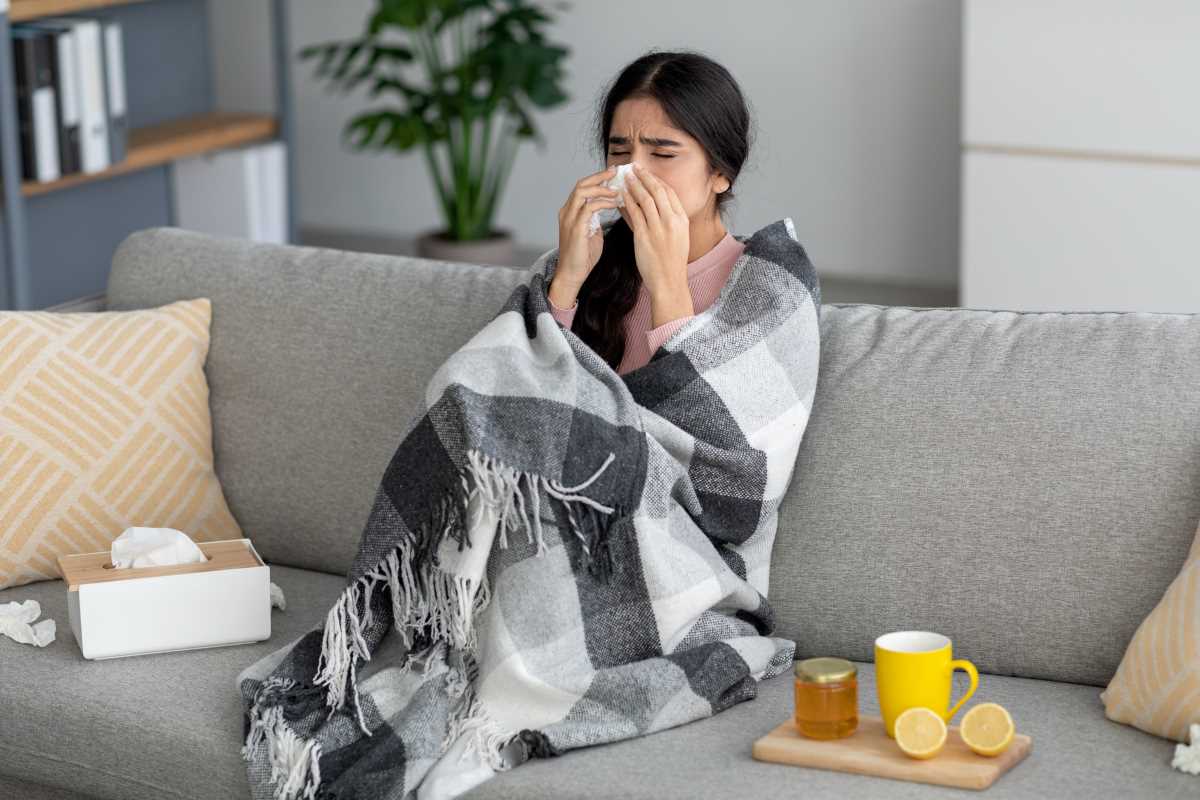That sudden feeling of being hit by a truck—chills, body aches, and a cough that seems to come out of nowhere—is an experience many of us know all too well. It's the annual arrival of the influenza virus, or the flu. Every year, this respiratory illness makes the rounds, causing misery for millions. Understanding the flu is your first line of defense. Knowing what to look for and how to take care of yourself can make a huge difference in how quickly you recover.
How to Spot the Flu: Key Symptoms
The flu often gets confused with the common cold, but it’s usually much more intense and comes on very suddenly. A cold might build up over a few days, but the flu can make you feel perfectly fine one moment and completely wiped out the next. The symptoms affect your entire body, not just your nose and throat.
Common Signs of Influenza
- Sudden High Fever: A temperature of 100°F (37.8°C) or higher is a classic indicator.
- Body Aches and Muscle Pains: This is often one of the most memorable and uncomfortable symptoms.
- Chills and Sweats: You might find yourself alternating between feeling freezing cold and then suddenly breaking into a sweat.
- Headache: A persistent and often severe headache is common.
- Dry, Persistent Cough: The flu cough is typically non-productive, meaning you aren't coughing up mucus.
- Extreme Fatigue: A profound sense of weakness and exhaustion can last for weeks.
- Sore Throat: Your throat may feel raw and scratchy.
- Nasal Congestion: While more common with a cold, a stuffy or runny nose can also occur with the flu.
At-Home Treatments to Help You Recover
For most healthy people, the flu is a miserable experience but not a life-threatening one. Your body's immune system is the real hero, and your job is to support it so it can do its work effectively. The best treatment plan for a mild to moderate case of the flu involves rest, hydration, and managing your symptoms.
Rest is non-negotiable. Your body needs a massive amount of energy to fight off the virus, so you need to cancel your plans and get as much sleep as possible. Staying in bed gives your immune system the best chance to win the battle. Hydration is equally important. Fever can cause you to lose a significant amount of fluids, leading to dehydration, which can exacerbate your symptoms. Drink plenty of water, broth, herbal tea, or electrolyte drinks to replenish what you’ve lost.
Over-the-counter (OTC) medications can provide significant relief from your symptoms. They won't cure the flu, but they can make you feel much more comfortable while you recover. Pain relievers like acetaminophen (Tylenol) or ibuprofen (Advil, Motrin) can help reduce your fever, ease muscle aches, and relieve headaches. Decongestants can help with a stuffy nose, and cough drops or throat lozenges can soothe a raw, sore throat.
Your Flu Recovery Toolkit
- Get Plenty of Rest: Sleep is your body's best medicine for fighting infection.
- Stay Hydrated: Drink lots of fluids to prevent dehydration. Warm liquids like soup or tea can also be soothing.
- Use a Humidifier: Running a cool-mist humidifier can add moisture to the air, which may help ease a cough and sore throat.
- Take OTC Medications: Use fever reducers, pain relievers, and decongestants as needed to manage your symptoms. Always follow the dosage instructions on the label.
When to See a Doctor
While most people can ride out the flu at home, there are times when you should seek medical advice. Certain groups are at a higher risk of developing serious complications from the flu. These groups include young children, adults over 65, pregnant women, and people with chronic health conditions like asthma, diabetes, or heart disease.
A doctor may prescribe an antiviral medication. These drugs are not antibiotics; they work by preventing the flu virus from multiplying in your body. The most common antivirals are oseltamivir (Tamiflu), zanamivir (Relenza), peramivir (Rapivab), and baloxavir marboxil (Xofluza). For these medications to be most effective, they need to be started within the first 48 hours of symptoms appearing. They can help reduce the severity of your illness and shorten the time you're sick by about a day.
It's also crucial to watch for signs of serious complications. The flu can sometimes lead to more dangerous conditions like pneumonia, bronchitis, or sinus infections. Seek immediate medical attention if you experience difficulty breathing, chest pain, sudden dizziness, confusion, or a fever that goes away and then returns.
Prevention Is the Best Medicine
The best way to deal with the flu is to avoid getting it in the first place. The single most effective way to prevent the flu is by getting your annual flu shot. Scientists update the vaccine each year to match the flu strains that are expected to be most common. It helps your body build up antibodies so it's ready to fight off the virus if you're exposed.
Good hygiene habits are also essential. Wash your hands frequently with soap and water for at least 20 seconds, especially after coughing, sneezing, or being in public places. Avoid touching your eyes, nose, and mouth, as this is a primary way germs enter your body. Finally, if you do get sick, stay home.
 (Image via
(Image via





